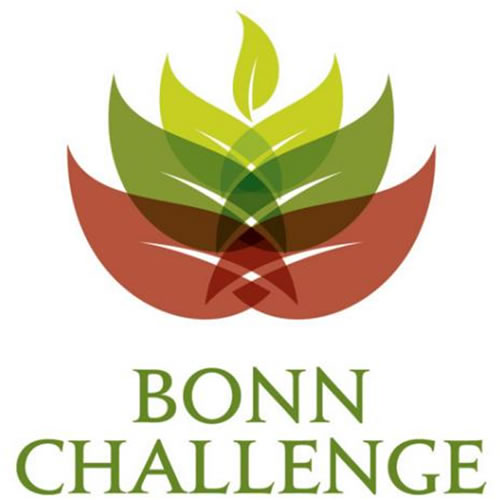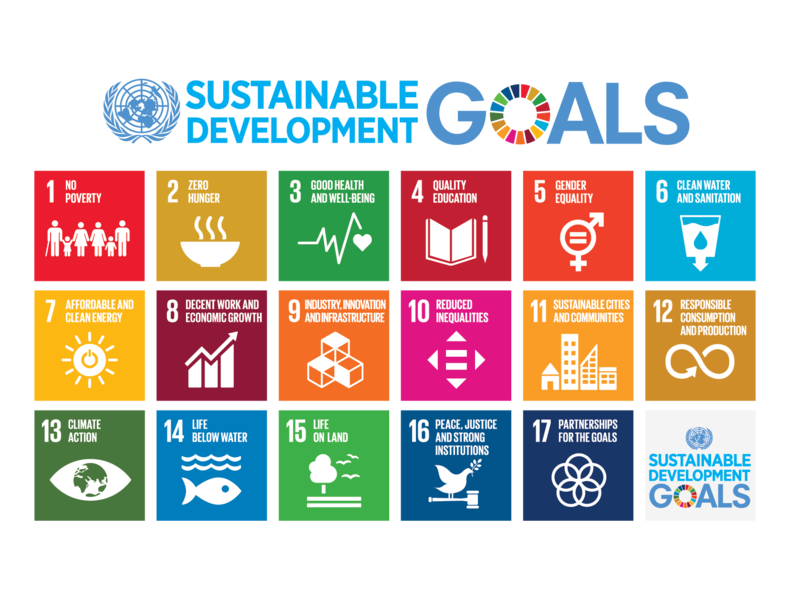international
Pledges &
Targets

With rapidly increasing food and energy demands from a growing population, degrading soils, and a changing and increasingly erratic climate, global food insecurity presents a major ongoing challenge. In developing countries, where the vast majority of population rely on small-scale rainfed agriculture, and where farmers lack the resources to mask the impacts of nutrient-depleted soils with chemical fertilizers, these challenges are extreme and increasing.
In recent years, the United Nations, the African Union, and various other political bodies have devised conventions and targets to assist in addressing these challenges. Some notable examples include the UNCCD’s Land Degradation Neutrality targets, the UNFCCC Paris Agreement, the UN’s Sustainable Development Goals, the Convention on Biological Diversity (CBD) or Aichi biodiversity commitments, the German Government and IUCN’s Bonn Challenge, the African Union’s AFR100, and the Nationally Determined Commitments for climate action.
Many developed country governments, donors, development banks and foundations have pledged, and in many cases provided, significant political and financial support to assist in meeting these targets; and many developing and Least Developed countries have committed to specific national contributions towards achieving regional and global targets. However, there are very few effective and cost-effective approaches that can be implemented at a sufficient scale to deliver on these commitments. In fact, there may only be one: FMNR/EverGreening.
Some of the more significant conventions and restoration targets that the work of the Alliance contributes toward are as follows –

BONN CHALLENGE
The Bonn Challenge is a global effort to bring 150 million hectares of the world’s deforested and degraded land into restoration by 2020, and 350 million hectares by 2030.
- Launched in 2011 by the Government of Germany and IUCN and later extended by the New York Declaration on Forests at the 2014 UN Climate Summit
- Will create approximately US$ 84 billion per year in net benefits (which could bring direct additional income opportunities for rural communities) – about 90% of this value is potentially tradeable, meaning that it encompasses market related benefits
- Achieving the 350-million-hectare goal will generate about US$ 170 billion per year in benefits from: watershed protection, improved crop yield and forest products
- Could sequester up to 1.7 gigatonnes of carbon dioxide per year
- The Bonn Challenge is not a new commitment but rather a practical means to achieve other existing commitments such as: the CBD Aichi Target 15, the UNFCCC REDD+ goal and the Rio+20 Land Degradation Neutrality goal.
UNCCD TARGETS
The Secretariat and the Global Mechanism of the UNCCD are supporting interested countries in the national land degradation neutrality (LDN) target setting process, including the definition of national baselines, targets and associated measures to achieve LDN by 2030 through the LDN Target Setting Programme.
- Land Degradation Neutrality (LDN) has been defined by the Parties to the Convention as: A state whereby the amount and quality of land resources, necessary to support ecosystem functions and services and enhance food security, remains stable or increases within specified temporal and spatial scales and ecosystems.
- An agenda for 2030 was made in 2015 with 110 countries engaged
- SDG target 15.3 (“By 2030, combat desertification, restore degraded land and soil, including land affected by desertification, drought and floods, and strive to achieve a land degradation-neutral world”) is a strong vehicle for driving UNCCD implementation, while at the same time contributing to other SDGs, including those relating to climate change mitigation and adaptation, biodiversity conservation, ecosystem restoration, food and water security, disaster risk reduction, and poverty
- Is being implemented in cooperation with: the Global Environment Facility (GEF), the International Union for Conservation of Nature (IUCN), Food and Agriculture Organization of the United Nations (FAO), United Nations Development Programme (UNDP), United Nations Environment Programme (UNEP), the European Space Agency, International Soil Reference and Information Centre, Joint Research Centre of the European Commission, World Resources Institute (WRI), Soil Leadership Academy (SLA), and the Government of the Republic of Turkey (though the Ankara Initiative), Germany, France, Luxembourg, Spain, Trinidad and Tobago, and the Republic of Korea (through the Changwon Initiative)


SUSTAINABLE DEVELOPMENT GOALS
The Sustainable Development Goals are the blueprint to achieve a better and more sustainable future for all. They address the global challenges we face, including those related to poverty, inequality, climate, environmental degradation, prosperity, and peace and justice. The Goals interconnect and in order to leave no one behind, it is important that all Goals and targets are achieved by 2030.
The activities of the Alliance relate directly to the achievement of goals: 1, 2, 3, 12, 13 and 15
PARIS AGREEMENT
The Paris Agreement builds upon the Convention and for the first time brings all nations into a common cause to undertake ambitious efforts to combat climate change and adapt to its effects, with enhanced support to assist developing countries to do so. The Paris Agreement central aim is to strengthen the global response to the threat of climate change by keeping a global temperature rise this century well below 2 degrees Celsius above pre-industrial levels and to pursue efforts to limit the temperature increase even further to 1.5 degrees Celsius. Additionally, the agreement aims to strengthen the ability of countries to deal with the impacts of climate change, and to make finance flows consistent with a low GHG emissions and climate-resilient pathway.


AFR100
Coordinated by the Africa Union’s New Partnership for Africa’s Development (NEPAD), the African Forest Landscape Restoration Initiative (AFR100) is a country-led effort to bring 100 million hectares of land in Africa into restoration by 2030. It aims to accelerate restoration to enhance food security, increase climate change resilience and mitigation, and combat rural poverty.
- The AFR100 is a partnership between more than 20 African governments, and several financial institutes.
- The initiative contributes to the achievement of a variety of targets, including domestic commitments, the Bonn Challenge (including the New York Declaration on Forests’ extension of this including 350 million hectares restored by 2030) and the African Resilient Landscapes Initiative (ARLI)
- AFR100 seeks to restore forests and tree cover on 100 million hectares of land in Sub-Saharan Africa by 2030. Restoration of productive landscapes through AFR100 will help lift people out of poverty, stabilize food production, protect biodiversity, help African economies grow, and contribute to adapting to and mitigating climate change.